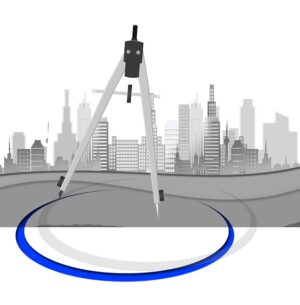Adopting energy-efficient water heaters electric systems, such as tankless or point-of-use models and storage heaters, offers significant cost savings by optimizing energy use. These advanced systems eliminate standby power loss and heat water only as needed, reducing electricity bills compared to traditional tank heaters. Proper maintenance, including regular flushing and thermostat adjustments, further enhances efficiency for all water heaters electric types.
Looking to slash your household utility bills? Consider energy-saving electric water heaters. These innovative devices not only reduce your carbon footprint but also significantly lower electricity consumption, leading to substantial savings. This article explores the benefits of switching to energy-efficient models, delves into the various types available in the market, and offers expert tips for optimal performance. Discover how modern electric water heaters can transform your energy costs.
- Understanding Electric Water Heaters and Their Impact on Energy Consumption
- Benefits of Using Energy-Efficient Electric Water Heaters
- Types of Modern Electric Water Heaters in the Market
- Tips for Maintaining and Optimizing Your Electric Water Heater to Save More
Understanding Electric Water Heaters and Their Impact on Energy Consumption

Electric water heaters are a common fixture in many households, providing hot water for various daily activities. Understanding how these appliances function and their energy consumption patterns is key to recognizing the potential for significant cost savings. Traditional electric water heaters, often known as tank-type heaters, store hot water in an insulated tank, heating it continuously to maintain a constant temperature. This process incurs energy costs even when no hot water is being used, making them less energy-efficient compared to modern alternatives.
In contrast, newer electric water heating systems, such as tankless or point-of-use heaters, offer more efficient solutions. These systems heat water only when needed, immediately delivering hot water at the faucet or showerhead. Electric storage heaters are another option, designed to store excess energy during off-peak hours and use it to heat water, reducing peak demand and associated costs. By opting for energy-efficient electric heating methods, homeowners can substantially lower their residential electric heater bills while contributing to a greener environment.
Benefits of Using Energy-Efficient Electric Water Heaters

Using energy-efficient electric water heaters offers a multitude of benefits for homeowners looking to reduce their utility bills and environmental impact. These advanced systems are designed to provide hot water on demand, eliminating the need for large storage tanks, which significantly reduces energy consumption. Electric water heating technologies, such as tankless or instant heaters, heat water only when needed, minimizing standby power loss and optimizing energy use.
Residential electric heaters, including tank and tankless models, are known for their compact size and flexibility. Tankless electric systems, also referred to as point-of-use heaters, directly heat water as it flows through the faucet or showerhead, making them ideal for specific applications like instant hot water in kitchens and bathrooms. This targeted approach ensures efficient energy utilization, contrasting traditional tank water heaters that maintain a constant hot water supply, leading to unnecessary energy wastage. Electric storage heaters also contribute to energy-efficient home water heating by storing thermal energy during off-peak hours for later use, further reducing overall energy costs.
Types of Modern Electric Water Heaters in the Market

Modern electric water heaters come in various types, each offering unique features to cater to diverse residential needs. Among the popular choices are tank water heaters, which store hot water in a reservoir, providing a consistent supply for households. These traditional heaters have made significant strides in energy efficiency, with improved insulation and heating elements designed to minimize heat loss.
For those seeking more advanced options, tankless electric systems or point-of-use heaters are worth considering. These innovative solutions eliminate the need for storage tanks, delivering hot water on-demand directly from the water source. This technology is particularly advantageous in smaller households or areas where space is limited, ensuring energy-efficient home water heating without the bulk of traditional tank heaters. Electric storage heaters are another modern alternative, offering a cost-effective way to heat water and homes simultaneously, making them a popular choice for residential electric heaters.
Tips for Maintaining and Optimizing Your Electric Water Heater to Save More

Maintaining and optimizing your electric water heater can lead to significant savings on household utility bills. Regular flushing is crucial for removing sediment buildup at the bottom of the tank, which improves heat transfer efficiency. This simple step ensures your residential electric heaters operate at peak performance. Additionally, adjusting the thermostat to 120°F (49°C) or lower can prevent energy wastage as most people don’t require water heated above this temperature for daily use.
For tankless electric systems or point of use heaters, ensuring proper insulation around pipes can significantly reduce heat loss. Upgrading to energy-efficient heating models, such as electric storage heaters, can also cut down on energy consumption. Instant electric heaters are another option, offering precise temperature control and minimizing wait times for hot water—all contributing to a more efficient home water heating system.
Electric water heaters are a smart choice for households looking to reduce utility bills while contributing to energy efficiency. By understanding their operation, leveraging modern models, and implementing maintenance tips, you can optimize your energy savings. Adopting these practices not only benefits your wallet but also promotes a greener lifestyle. So, make the switch to energy-saving electric water heaters and experience the positive impact on both your home’s comfort and the environment.






